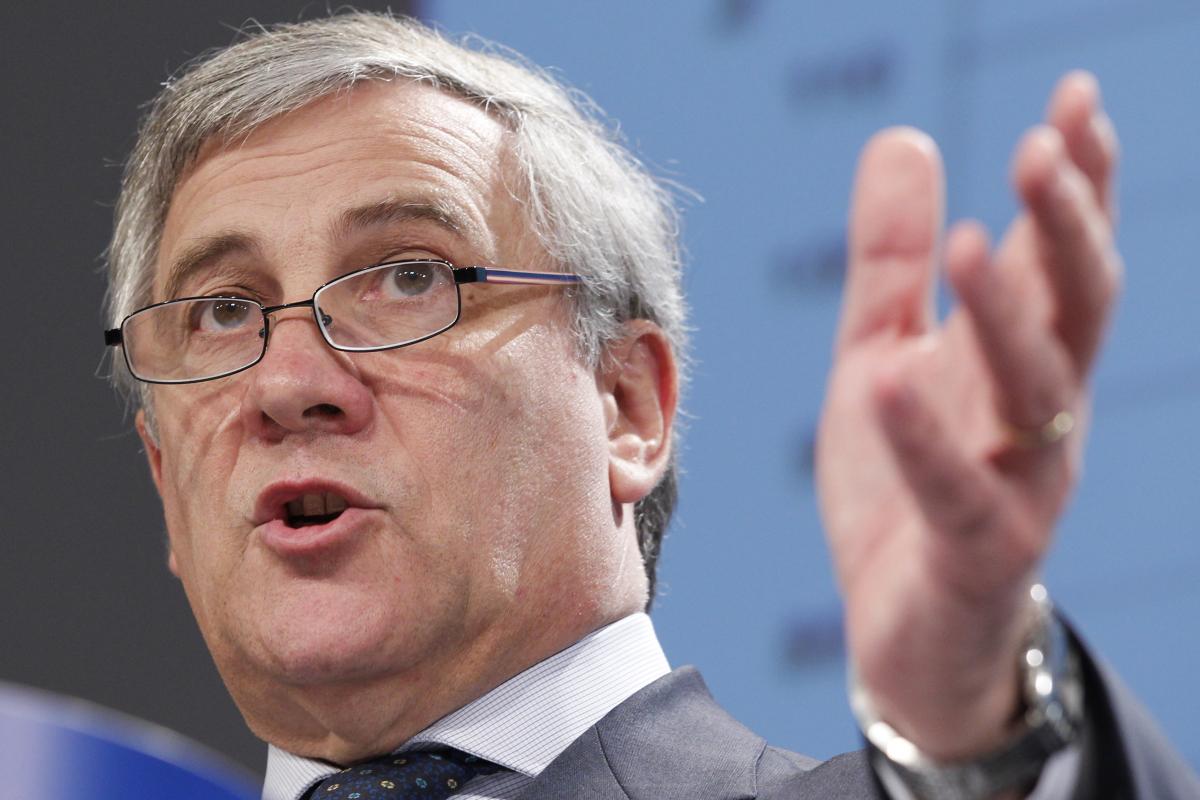Europe’s Galileo, EGNOS and Copernicus space programmes are proving their value in rejuvenating the EU economy and creating jobs. That was the message delivered by Antonio Tajani, Vice-President of the European Commission to a high-level conference on EU space policy where he also called for continuing budgetary support for the space sector.
 The fifth annual conference on EU space policy in Brussels on 29-30 January gathered decision-makers from government and industry, and looked at many key issues including how to promote competitiveness in the space sector, how to ensure an effective governance of EU space activities, the role of industrial policy, and strategies to secure adequate programme funding.
The fifth annual conference on EU space policy in Brussels on 29-30 January gathered decision-makers from government and industry, and looked at many key issues including how to promote competitiveness in the space sector, how to ensure an effective governance of EU space activities, the role of industrial policy, and strategies to secure adequate programme funding.
Vice-President Tajani, European Commissioner for Industry and Entrepreneurship, said that space played a vital role in strengthening the EU’s competitiveness. “Space activities are a source of highly skilled jobs, bring innovation, open new business opportunities and improve the well-being and safety of citizens,” he said. Vice-President Tajani added that a European Commission communication on space industrial policy would be published soon and would propose a series of actions to fulfil the space industry’s potential to drive innovation and generate growth.
Budget for growth
With the EU Member States currently debating the next seven-year budget, Tajani defended the Commission’s proposal for a €2 billion annual budget for space programmes. The plea came just over a week before the key EU summit that fixed the EU’s 2014-2020 financial framework.
There were fears that the proposed budgets for the Galileo satellite navigation system and the EGNOS signal enhancing system (€7 billion over seven years) and Copernicus, the European Earth observation programme (€5.8 billion) may be trimmed in the negotiations. But Tajani said any such cuts would be defeatist. “We in Europe have the know-how to make space a key instrument for economic recovery,” he said. “We must give ourselves the means to use this expertise to enable our citizens to benefit from all the advantages it offers.”
Tajani was echoed by Amalia Sartori, chair of the European Parliament’s Committee on Industry, Research and Energy (ITRE), who said the financial benefits from space were too great to ignore. “It is absolutely essential to have a long-term financial commitment for these programmes. We cannot have cuts,” she said.
New financial models
During the debate on space governance, Carlo des Dorides, the Executive Director of the European GNSS Agency (GSA), said the EU should look at different funding models for the development of space applications and services which is the area where the major value of GNSS resides. “Entering into the Galileo exploitation phase we should try to develop innovative project financing initiatives, venture capital projects focussed on entrepreneurial projects, as well as project bonds,” he said.
With respect to the future governance scheme, which will be highlighted in the forthcoming GNSS Regulation, Mr des Dorides commented: “The Public Sector has to focus on efficiency and agility; two key elements that must be properly synchronised with industry to fully value their know-how and competitive advantages.”
Mr. des Dorides said that the broad outline of the draft regulation on European GNSS Programme governance suggested a new delegation of responsibilities. The European Space Agency (ESA) would eventually play the role of system integrator for the space and ground segment, a role formerly played by the private sector, while the GSA would act as a direct interface with industry for operational and services issues.
He added that the GSA’s main role would also be to interface with users, understand their needs and finally promote the widest possible adoption of EU GNSS. EGNOS, which has been a real test bed for the GSA, has proved to be a success story in this respect so far.
Media note: This feature can be republished without charge provided the European GNSS Agency (GSA) is acknowledged as the source at the top or the bottom of the story. You must request permission before you use any of the photographs on the site. If you do republish, we would be grateful if you could link back to the GSA website.